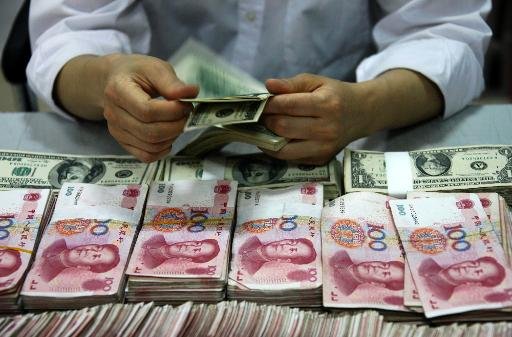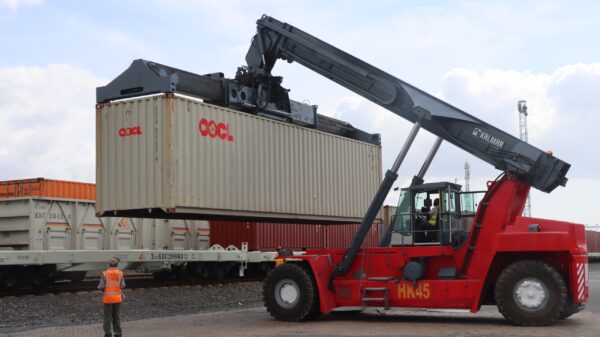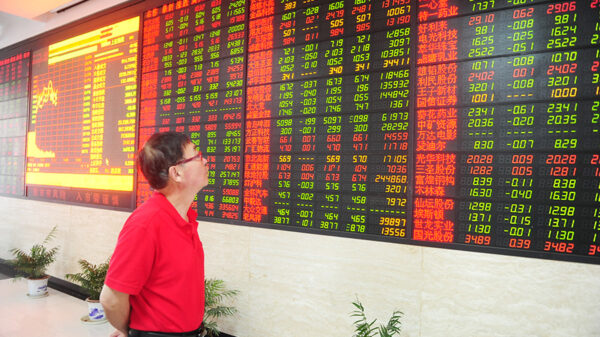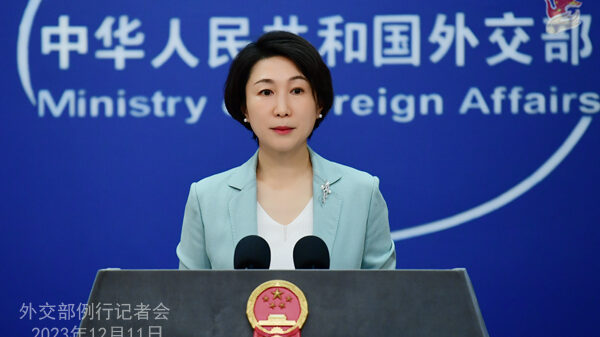With deals from London to Singapore, China is seeking a greater role for its yuan currency in global markets to challenge the hegemony of the almighty dollar.
The most attention-grabbing reform planned for Shanghai’s new free trade zone is free convertibility of the yuan — also known as the renminbi, or “people’s money” — an unprecedented change which would allow greater use of the currency.
But no timetable has been specified, and a true contest between Mao Zedong, Communist China’s founding father whose face is emblazoned on most yuan notes, and Benjamin Franklin on the $100 bill will be years in the making.
For decades the US has benefited to the tune of trillions of dollars-worth of free credit from the greenback’s role as the default global reserve unit.
But as the global economy trembled before the prospect of a US default last month, only averted when Washington reached a deal to raise its debt ceiling, China’s official Xinhua news agency called for a “de-Americanised” world.
It also urged the creation of a “new international reserve currency… to replace the dominant US dollar”.
For China — which has the world’s biggest foreign exchange reserves — the immediate appeal of a greater role for the yuan is lubricating trade flows and drawing foreign investment.
“Policymakers have made new efforts to increase the attraction of the renminbi in global markets,” said Capital Economics analyst Wang Qinwei.
He pointed to a deal with Britain in October allowing London-based institutions to invest directly in China — avoiding an expensive detour via Hong Kong — with an initial quota of 80 billion yuan ($12.9 billion).
A week later Beijing signed a similar 50 billion yuan agreement with Singapore.
China’s central bank, the People’s Bank of China, also signed a currency swap deal with the European Central Bank last month for 45 billion euros ($61 billion), giving eurozone banks greater access to the yuan.
In the run-up to an important plenum of the ruling Communist Party, Zhao Longkai of the Guanghua School of Management at Peking University, said the measures were “important steps” but added that progress was likely to be slow.
“We take gradual steps, so that’s what China will do,” he told AFP. “It’s China, it’s hard to talk about any dramatic changes.”
“China has to be very careful about this because… we want to maintain the value of the currency,” he added.
The yuan-dollar exchange rate is effectively controlled by Chinese authorities, and the relaxation of strict capital controls could see funds flow out of China.
Since January, the yuan has strengthened by more than two percent, setting a series of record highs and creeping towards the symbolically significant 6.0 yuan to the greenback mark.
The Chinese central bank has been “purchasing foreign exchange at a frantic rate in recent weeks… underlining again how reluctant policymakers are to leave the renminbi in the hands of market forces,” said Wang of Capital Economics.
“Among many other implications, this suggests that capital account liberalisation is a long way off.”
But investors’ lust for yuan shows no sign of weakening. It became the world’s eighth most-traded currency this year, overtaking the Russian ruble and South Korean won, according to the interbank network Swift.
Yuan currency trading volumes more than doubled between January 2012 and August this year, when it held a 1.49 percent global market share, it added.
Outside China and Hong Kong, London saw 62 percent of the transactions by value, followed by New York and Paris.
The market for “dim sum” bonds, denominated in yuan and issued in Hong Kong, is small but growing rapidly: the total issued in the first nine months of this year was 65 percent higher than that for all of 2012, according to ratings agency Fitch.
The yuan will become the world’s fourth most commonly used currency in international trade by 2020, with $3 trillion-worth of business denominated in yuan, estimates Standard Chartered economist Stephen Green.
But Jens Nordvig, global head of foreign exchange strategy for investment bank Nomura, warned that internationalisation of the unit could only occur “over a multi-year horizon”.
China needs free convertibility on the capital account and developed capital markets, he said. At present the yuan is only convertible on the current account, consisting mainly of trade flows.
“First, it needs to be super liquid and second it needs to be available for global investors,” he said, “neither of which are fully developed in China”.



















































